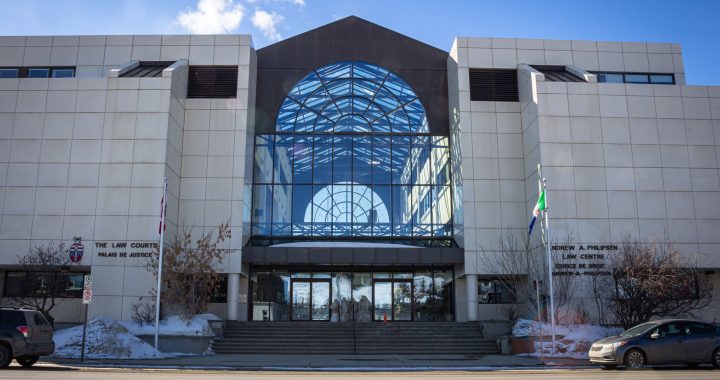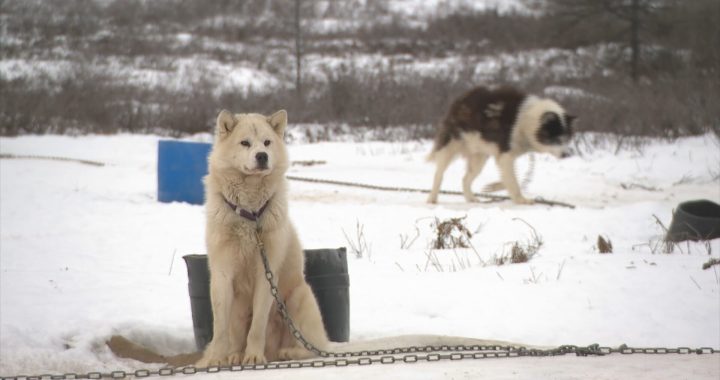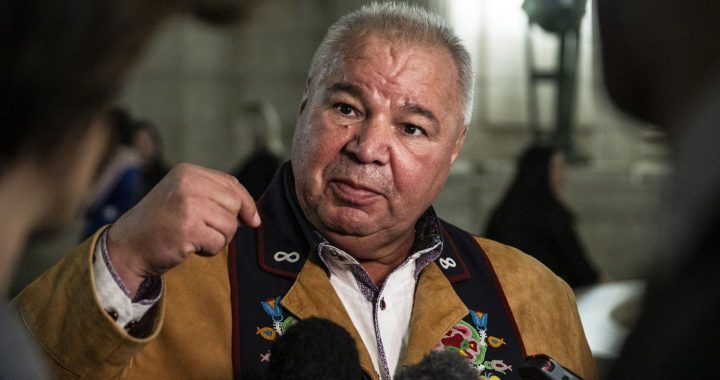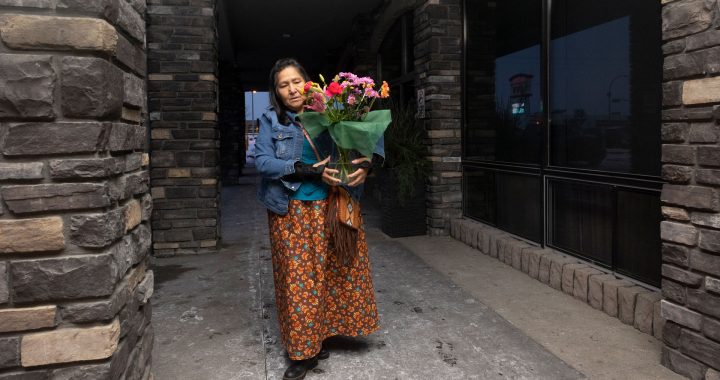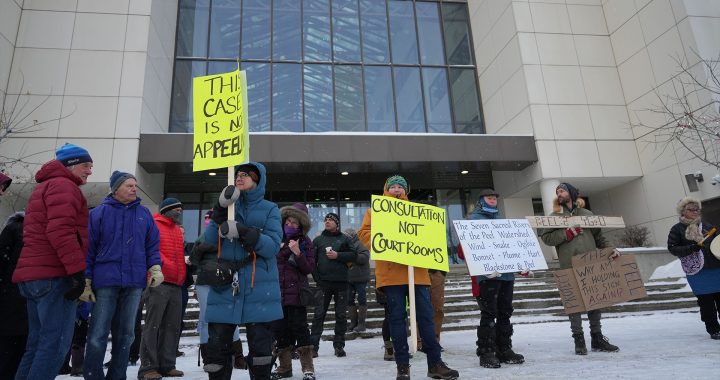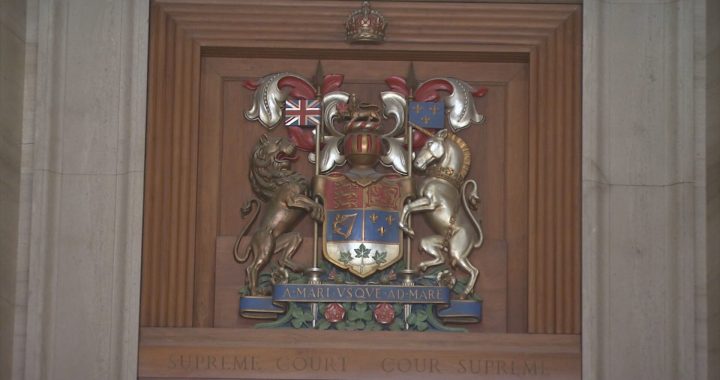
Jackie Maurice is the inaugural CEO of the Sixties Scoop Healing Foundation. Photo: Submitted
The Hope for Wellness Help Line offers immediate help to all Indigenous Peoples across Canada. It is available 24 hours a day, 7 days a week by calling 1-855-242-3310 or connect to the online chat at www.hopeforwellness.ca.
To say Jackie Maurice knows the emotional turmoil of being “scooped” is an understatement.
The new CEO of the Sixties Scoop Healing Foundation grew up in 14 foster homes after being forcibly removed from her family and community.
“I bring in the lived experience,” she says from Saskatoon.
“I went through the [Saskatchewan] Adopt Indian [and Métis] program – AIM for short. I was taken from the Meadow Lake Union Hospital, however I was not registered for adoption.
“So what that meant, in my particular case, I was made a permanent ward (of the province) and went in and out of foster care right until I was a teenager.”
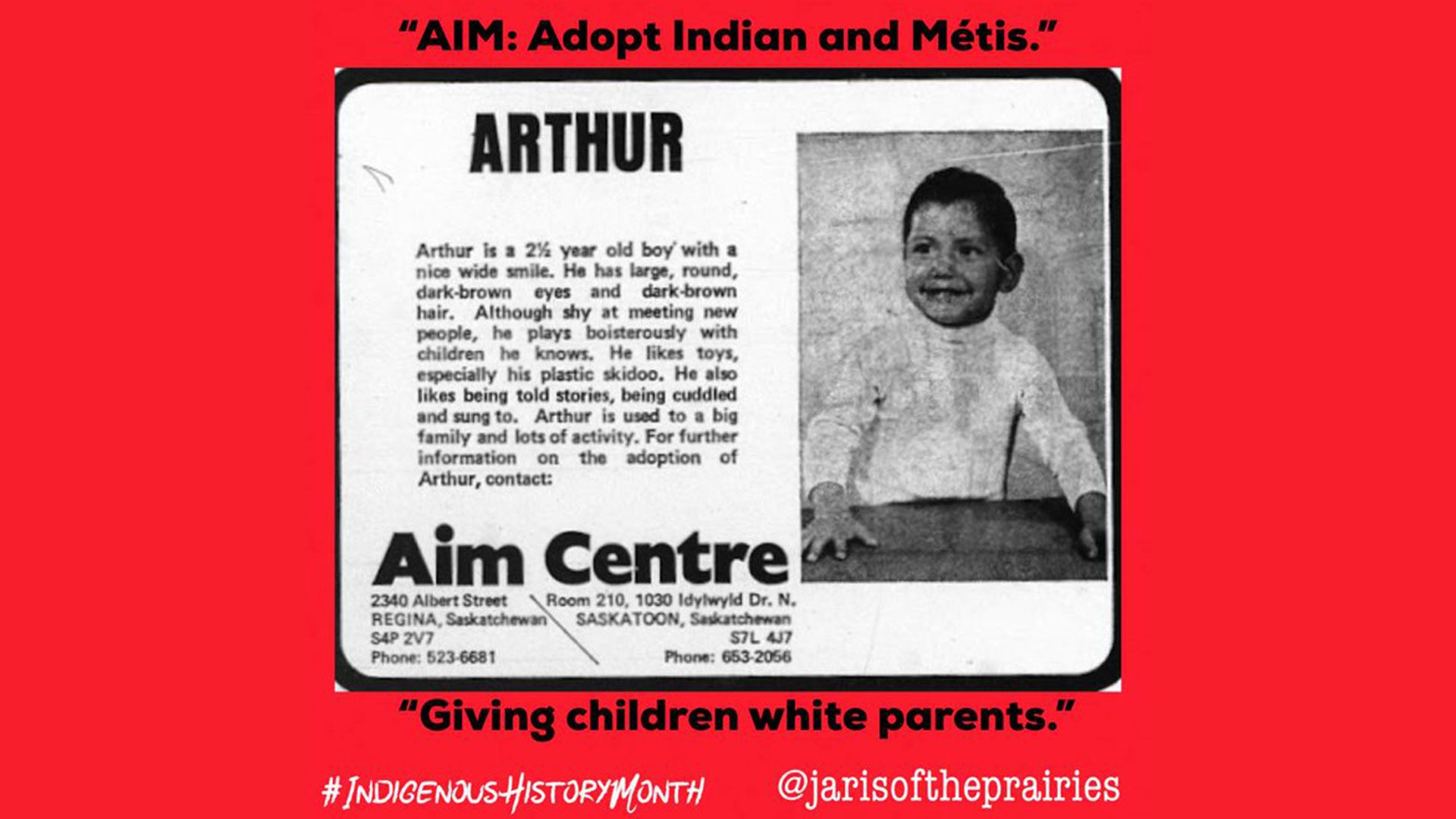
Maurice suffered the psychological trauma of being separated from her parents and losing her cultural ties like thousands of other Scoop survivors.
An estimated 25,000 to 30,000 children were part of the “’60s Scoop” – a large-scale removal or “scooping” of Indigenous children through the 1960s – to non-Indigenous foster homes or families throughout Canada, the United States and even overseas.
At 15, Maurice decided “enough was enough” and struck out on her own. She left high school, had no known relatives, or sense of who she was.
That loss of identity, she notes, is what differentiates victims of the ‘60s Scoop from Indigenous students who survived the residential and day school systems.
“Even with the losses and the traumas and the commonalities with the ‘60s Scoop or Millenium Scoop, the day school and residential school children they went home,” Maurice says.
“Once you become a part of the child welfare system, there is no going home. There is no reunification. There is only – bluntly put – permanent good byes.”

Maurice says she was self-destructive, attempted suicide, and relied on alcohol to get through her teen years.
She was in her 20s when she finally understood the message her Elders and knowledge-keepers were preaching: ‘We need to know where we came from in order to go forward.’”
She embarked on a 12-step program [after undergoing surgery to remove scar tissue on the brain that saw her labelled with “mental retardation”] to recover from “a seemingly hopeless state of mind and body with alcoholism.”
She says sobriety gave her the strength to do the rest.
“It’s self-help in the greatest sense. I received the help when I began to help myself.”
Read the vision, mission and values of the Sixties Scoop Healing Foundation here
She found a safe space at the Saskatchewan Indian Federated College [now First Nations University of Canada] to rebuild her spirit and search for her roots, while devoting her academic career to studying and doing research on the ‘60s Scoop.
“That inner search became my research,” she says.
“I’m the Phil Fontaine of the ‘60s Scoop, because no one had heard about the ‘60s Scoop.” [Fontaine is credited with putting residential school trauma on the national agenda.]
Maurice is of French and Cree ancestry from Meadow Lake, Sask. She obtained her PhD in social work and became a faculty member in the College of Medicine at the University of Saskatchewan as a non-medical doctor.
Now, she is the first executive at the helm of a national, multi-million-dollar granting agency established to provide healing and wellness supports for survivors. Yet she still makes time to lead sharing circles in Saskatoon.
Email the Sixties Scoop Healing Foundation at [email protected]
The Foundation doesn’t deliver the programs directly but partners with organizations that do. It has distributed $1 million in grants to eight agencies, and is gearing up to announce its next round soon, says Maurice.
“It’s very, very exciting at this point in time. I waited 25, 30 years of my young adult life to have a place to turn,” she says. “We realize…that our ‘60s Scoop survivors, their families and descendants are hungry for information.
“We want survivors to know that we are listening. That survivors are no longer alone.”
The Foundation to focus on recovery was created with $50 million of the $875-million paid by Canada as part of the Sixties Scoop Settlement Agreement.
The national class-action settlement was intended to compensate Inuit and First Nations survivors for the loss of their cultural identities [Métis and non-status Indians were excluded from the settlement].
See ’60s Scoop Community Resources click here.
Maurice is the Foundation’s only paid employee. The board of directors, who hired her in September, 2021, is comprised of volunteers.
She sees it as “a place to turn, a place to be heard, a place to be validated.”
But the Foundation has been the subject of withering criticism from angry survivors.
Maurice accepts some of that criticism. She says there were problems with a digital handover, it was missing a toll-free number, and has no presence on social media.
“The Sixties Scoop Healing Foundation is in its early phases, and it is a process,” she says. “I have the empathy with those survivors that are reaching out.”
For now, she is listening to voicemail messages and returning survivors’ calls personally until more staff members are hired and more programs become available.
“We will be building a team in the next several months,” she explains. “I look forward to connecting with other ‘60s Scoop survivors.”
Maurice says the Foundation will eventually occupy an office somewhere in Canada.
Editor’s Note: This story was changed on 27/04/22 to correct the number of ’60s Scoop survivors. There are an estimated 25,000 to 30,000 survivors and not 150,000 as the story first reported.




